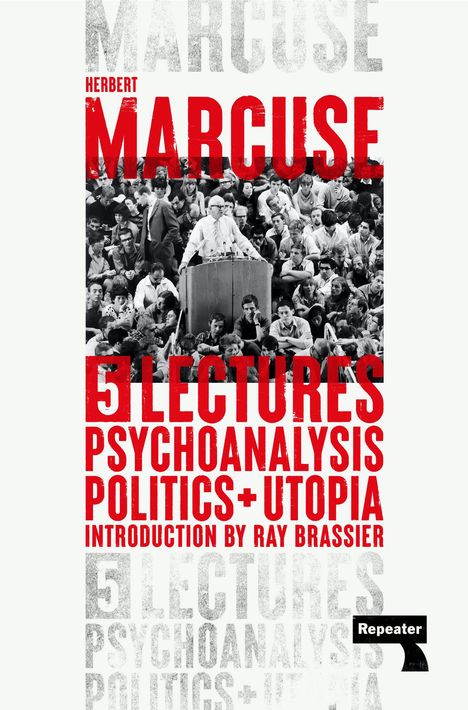Herbert Marcuse: Psychoanalysis, Politics, and Utopia, Kartoniert / Broschiert
Psychoanalysis, Politics, and Utopia
- Five Lectures
(soweit verfügbar beim Lieferanten)
- Verlag:
- Watkins Media, 08/2022
- Einband:
- Kartoniert / Broschiert
- Sprache:
- Englisch
- ISBN-13:
- 9781914420405
- Artikelnummer:
- 10997005
- Gewicht:
- 367 g
- Maße:
- 195 x 135 mm
- Stärke:
- 15 mm
- Erscheinungstermin:
- 23.8.2022
- Hinweis
-
Achtung: Artikel ist nicht in deutscher Sprache!
Klappentext
An impassioned plea for overcoming capitalism, whose urgency is more timely today than when it was first published fifty years ago.
Back in print after fifty years and with a new introduction by Ray Brassier, this often overlooked but prescient collection of Marcuse's lectures makes an impassioned plea for the overthrowing of capitalism. Analysing the work of Freud and Marx, and taking in topics like automation, work, postcapitalism, utopia, and technology, Psychoanalysis, Politics, and Utopia excavates the psychic roots of the current crisis of capitalist civilisation, and gives us a blueprint for the emancipation of humanity from the toils of capitalism.
In a world reeling from the ongoing collapse of the neoliberal consensus, coupled with the accelerating pace of catastrophic climate change wrought by capitalism, Marcuse's radical insights in Psychoanalysis, Politics, and Utopia are as urgently relevant today as they were in 1970.
Biografie
Herbert Marcuse, geboren 1898 in Berlin, wird nach dem Militärdienst im 1. Weltkrieg für kurze Zeit Mitglied eines Soldatenrates in Berlin. Ab 1919 studiert er Literaturwissenschaft und Philosophie in Freiburg/Breisgau (u.a. bei Husserl und Heidegger). 1932 wird er Mitarbeiter des Frankfurter Instituts für Sozialforschung und emigriert 1934 nach New York, wo er am Institute of Social Research tätig ist und Mitbegründer der Kritischen Theorie der Gesellschaft wird. Während des 2. Weltkriegs arbeitet Marcuse für den amerikanischen Geheimdienst, um die Kriegsanstrengungen der Aliierten gegen Nazideutschland zu unterstützen. Nach dem Ende des Krieges kehrt er nicht, wie Horkheimer und Adorno, nach Europa zurück, sondern lehrt an verschiedenen renommierten Universitäten der USA: An der Harvard University, der Brandeis University, der Princeton University, der University of California. Hier verfasst er seine großen Werke. Am 29. Juli 1979 stirbt Herbert Marcuse während eines Deutschlandaufenthalts in Starnberg.


